The idea that you should find it within yourself to overcome your challenges is a pervasive one in our society, especially when it comes to dealing with alcohol abuse. There is a merit to it; many people have successfully managed to overcome their illness by going “cold turkey.” How often have we read tales of triumph from those who hit the proverbial rock bottom and managed to persevere?
There is nothing wrong with overcoming alcoholism by traveling the above path. The problem comes in when those who may not be suited for this method are made to feel this is the only way to truly become well. The idea that there might be an alternative path is not often made clear to those with alcohol issues who are having trouble staying sober.
What Alcohol Detox Does to the Body
Chronic use of alcohol causes complex changes to the brain. Your transmitters that manage your feelings of excitement and reward get altered. Going through withdrawal means resetting how they work and getting your body used to the changes, leading you to experience withdrawal symptoms.
Common Alcohol Withdrawal Symptoms
- Feelings of nausea and extensive vomiting
- A sped-up heart rate
- Sweating
- Night terrors
- Increased anxiety
- Agitation
- Sleeplessness
- Constant headaches
Some people experience more extreme alcohol withdrawal symptoms called delirium tremens or DTs. Those going through DTs often experience:
- Feelings of disorientation
- Tremors
- Hallucinations
- Seizures
- Elevated blood pressure
- Heightened body temperature
Severe DTs can be dangerous, leading to the brain having issues regulating your circulation and breathing. If your blood pressure drops too drastically, you could end up having a heart attack or stroke.
Don’t Go It Alone
It is not a good idea to attempt detox on your own if you suspect you have a problem with alcohol abuse. Getting the care of a doctor can be crucial in saving your life if you end up going through DTs. Your doctor can accurately diagnose you and make recommendations on medications that can help mitigate your withdrawal symptoms.
Using Medications for Detox and Recovery
Medications aren’t meant to be a cure-all for alcoholism. They can’t help you address the core issues that caused you to turn to alcohol. Taking medication will not cure you of addiction. What may work for one individual may not affect you the same way. It can take some trial and error between you and your specialist to find the right solution.
Think of medication for alcoholism as a tool you can leverage to getting your head clear to prepare for the work ahead. You can focus while allowing your body to recover from the long-term effects of your alcohol abuse.
Many people assume relying on medication to stop drinking just shifts the addition from one form to another. There are also concerns about the effectiveness of these medications once a patient is past the initial detox period.
We are going to go over various medications for alcoholism and their uses. That should help clear up any confusion and provide clarity on how they could be beneficial in your recovery.
Medications for Alcoholics
Here are some of the benefits to be gained by using medication for alcoholism.
- Give you psychological support — It often takes more than one method to successfully work through alcohol recovery. Using medication can give you the reassurance needed that you’ll be able to manage the process.
- Curb alcohol cravings — The temptation to drink again is always present, even in individuals who have been sober for years. Certain medications can make alcohol less appealing, reducing your urge to drink.
- Gain help in dealing with underlying emotions — Many alcoholics suffer from underlying issues like depression. Some supporting medicines can alleviate these symptoms, along with feelings of anxiety and edginess.
It is crucial that you work with a professional experienced in managing addiction issues and understanding the effects of medication for alcoholism. They should evaluate you thoroughly to gain insight into any other medical conditions you might have that would factor into the prescriptions used for treatment.
- Physical health issues like heart or liver problems.
- Mental evaluations for mood disorders.
- Possible allergic reactions you might have to medications.
- Your motivation to get sober.
Let’s take a more in-depth look at the various medications prescribed to manage alcoholism.
Acamprosate
Alcohol manipulates the brain by releasing endorphins that bring about positive feelings, which is how your addiction and dependency takes hold. Acamprosate, also known by its brand name Campral, helps restore normal brain functions once you have purged alcohol from your body.
It is non-habit forming and keeps you from experiencing those feelings of happiness when you drink. That helps you fight the urge to lapse or relapse while in recovery. Your brain also gets the chance to relearn normal functions and experience happiness in ways that do not involve alcohol. Acamprosate can also help relieve alcohol withdrawal symptoms like sleeplessness, depression, and edginess.
The drug should not be prescribed before detoxing since it is not meant to reduce your withdrawal symptoms. You might experience the following side effects from taking acamprosate.
- Upset stomach
- Gas
- Diarrhea
- Dry mouth
- Itching
- Weakness
- Dizziness
- Difficulty sleeping
- Nausea
- Sweating
- Anxiety
A review of clinical studies done on acamprosate showed that those prescribed the medication had a lower relapse and more extended periods of alcohol abstinence than those who did not.
Naltrexone
Like acamprosate, naltrexone works by keeping alcoholics from experiencing euphoric feelings when they consume alcohol. Regular use after undergoing detox can remove feelings of positivity from alcohol. The medication is commonly prescribed post-detox as a deterrent to relapses. It can be taken orally as a tablet under the name ReVia, or as an injection under the name Vivitrol.
You will still experience the adverse side effects of alcohol if you try to keep drinking while taking the drug. Drinking more will not bring about the desired results, and you can still do serious harm to yourself. It is not a narcotic and is non-addictive, but it does carry specific side effects, including:
- Mild to moderate stomach and abdominal cramping
- Feelings of restlessness, nervousness, anxiety
- Trouble sleeping
- Muscle or joint pain
- Headaches
- Lethargy
- Nausea
Going over the prescribed dosage of naltrexone can result in liver damage. It is possible to prescribe both naltrexone and acamprosate together to make treatment more effective. You shouldn’t use either drug unless you are under the direct care of a treatment specialist.
Disulfiram
Disulfiram was one of the first drugs used in treating alcohol abuse, starting in the 1930s. Mixing alcohol with disulfiram causes discomfort when consumed. The idea behind using disulfiram was to make the user experience a negative stimulus when imbibing, discouraging further drinking. The feelings brought about by using Disulfiram include:
- Blurry vision
- Rapid heartbeat
- Confusion
- A flushed or red face
- Nausea
- Dizziness and fainting spells
- Feelings of weakness
- Sweating
- Headaches
- Chest pain
Also known as Antabuse, doctors do not prescribe the medication until you have flushed the alcohol out of your system. Taking it beforehand would worsen any withdrawal symptoms you experience. It works by inhibiting the breakdown of a compound in alcohol called acetaldehyde. The buildup of that compound in your body cause the effects listed above.
The effects of the medication last up to 14 days after administering your last dose. That covers any period where you may end up missing a dose or try to stop taking it to get positive feelings from alcohol once again. You can experience extreme effects on your body if you continue drinking while on the drug, including the breathing issues, the possibility of a heart attack or even death.
Alternative Medications
Certain drugs used for other conditions can sometimes be prescribed by a treatment specialist to treat alcoholism. Medications commonly used for this purpose include anticonvulsants that treat seizure disorders like epilepsy. The use of topiramate has been shown to naltrexone-like effects in removing feelings of euphoria while drinking. The side effects of topiramate on the brain means more research is needed to evaluate its ongoing effectiveness in being used to deter drinking.
Other medications for alcoholics that have been explored in curbing the desire to drink include serotonin-specific reuptake inhibitors (SSRIs) like citalopram. Physicians have also looked into using hallucinogenic components like psilocybin for treatment. None of these items should be taken by a person seeking help for alcohol abuse without being directed to do so by a physician or other treatment specialist.
Comprehensive Treatment
Anyone seeking long-term help for their alcohol issues should look for a comprehensive treatment program designed to treat all aspects of their condition. Having regular therapy, the support of others going through the same experience, and guidance on nutrition and exercise helps you work through the underlying issues that led to your excessive use of alcohol. Medication to stop drinking should be seen as an additional resource in providing you with long-term recovery.


